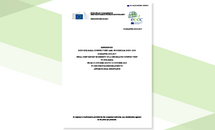Country visit to Bulgaria to discuss policies relating to antimicrobial resistance
ECDC and the European Commission's Directorate General for Health and Food Safety jointly carried out this country visit to Bulgaria from 15 to 19 October 2018. The visit was carried out following the invitation from the competent authorities to assist them in the preparation of their national strategy for tackling antimicrobial resistance (AMR) based on a 'One Health' perspective.
Executive summary
Overall, the report concludes that there are numerous gaps and weaknesses in the approach towards tackling AMR in Bulgaria, both in the veterinary and human health domains, which compare poorly with the situation in other Member States. There is in particular a significant lack of communication and collaboration between the veterinary, human health and environmental authorities in a One Health perspective. There is no Inter-sectoral One Health Coordinating Mechanism on AMR, and draft national action plans for animal health and for human health, which are in various stages of development, have been developed separately.
In the human area, the current levels of AMR are of concern. There seems to be limited knowledge about AMR in healthcare professionals on all levels. This is underlined by a lack of understanding of the extent of the issue of AMR and of the urgency to effectively manage and control AMR in the country. There also appear to be constraints in hospitals in terms of infrastructure, resources and a shortage in key healthcare personnel in various domains. If appropriate measures are not taken and the current trends of AMR continue, it is likely that untreatable healthcare-associated infections will become a reality, with an impact on the
ability of hospitals to provide important medical services such as major surgical procedures, cancer treatment and intensive care.
In the veterinary area, awareness concerning AMR matters is generally very low and few effective initiatives have been taken by the national authorities to date, which stated that this was due to the existence of other pressing work priorities, such as dealing with cases of African Swine Fever.
The report outlines various considerations which could be helpful in reviewing and implementing a national AMR strategy.
Download







